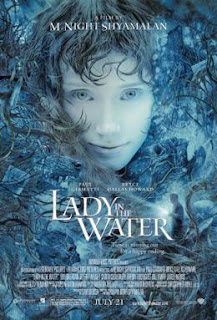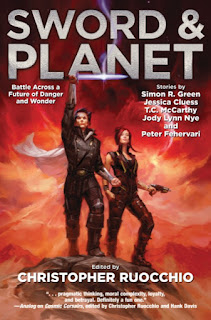Once upon a time, Myopia Movies did an episode on the Christopher Lambert classic Highlander. Some years later, we decided on an episode on Highlander 2: The Quickening, the 1991 sequel. AKA "the one where they're aliens." The version I ended up watching was the "renegade cut" from 1995 that removed all the nonsense about the immortals being aliens from the planet Zeist, although it still has its problems. The episode is exclusively for our Patreon subscribers; sign up here.
And now for the review. Calling it a "Bad Movie Review" this time, since I didn't see it years before like many Myopia films and, well, it's BAD.
The Plot
After the events of the first film, the thinning of the ozone layer necessitated the creation of an artificial replacement sponsored by none other than the now-mortal Connor MacLeod (Christopher Lambert). This new atmosphere, though it protects mankind, denies humanity the stars, ordinary views of the sky, and seems to have a generally negative effect on the climate. Connor has grown old and is despised by many of the people he had tried to protect.
However, the villainous General Katana (Michael Ironside), ruler of a lost civilization from the distant past (in the theatrical version an alien civilization) that had exiled the immortals to (their) distant future, worries that Connor might choose to return to his own time and once more challenge him. So he sends goons to kill him, inadvertently reactivating his immortality and de-aging him 30 years. Connor joins forces with ecoterrorist Louise Marcus (Virginia Madsen) to fight against Katana's henchmen and ultimately Katana himself, who allies with the sinister megacorporation controlling the planetary shield.
And what role does Ramirez (Sean Connery), Connor's long-dead immortal mentor, play in this whole situation?
The Good
*Christopher Lambert, Sean Connery, and Michael Ironside are having lots of fun playing their characters. Ironside in particular is absolutely over the top, playing the character as Jack Nicholson's Joker wearing Conan the Barbarian villain Thulsa Doom's wig and costume. Ironside is really entertaining to watch. He later said that he, Connery, and Lambert all recognized they were dealing with a crappy script and he decided he was going to have as much fun as possible. Ironside makes for a much more entertaining villain than the Kurgan--sorry Clancy Brown and your awesome medieval outfit that inspired the villain Grendel from my novel Battle for the Wastelands.
*They clearly had more money for action sequences and special effects for this one than they had for the original.
*Katana's duels with Connor are pretty impressive. It's my understanding that Lambert has really bad vision and thus couldn't fight effectively in the first movie, but in this one everything's much more fluid and they're a lot more likely to punch and kick each other. After all, this is a battle to the death, so why bother with any rules about technique and what-not?
*It's fast-moving and other than one scene, never dull.
*There are some genuinely funny bits, many of which revolve about Ramirez's difficulties with the modern world and his propensity to flirt with every woman he meets.
*I liked the callbacks to "Who Wants To Live Forever," probably one of the most legitimately poignant sequences in any movie I've seen in recent years.
The Bad
Where to start? Even with all the alien nonsense removed, there's so much in here that doesn't make any sense or is just plain ridiculous.
*The whole ozone-layer plot is ridiculous and really dated. The thinning of the ozone layer would cause increased likelihood of skin cancer and other problems, but it wouldn't cause masses of people to burn to death. And an artificial ozone layer wouldn't affect the climate like it does. And it shouldn't be that hard to determine if the ozone layer has recovered enough that the hugely expensive shield would not be required. And how was Connor in the position to sponsor a massive feat of geoengineering? He was "New York City antique dealer rich," not "Elon Musk rich." And not only did he help create this world-saving megaproject, but then he essentially abandons it and allows some generic 1980s/1990s corporate baddie to usurp it?
It would have been better to have the dying mortal Connor living in some kind of generic Bad Future where his attempts to use the psychic abilities gained from his defeat of the Kurgan and winning "The Prize" to improve the world ended up either being totally useless or backfiring and causing the whole situation. Suddenly his youth (or at least his immortality) return and he loses his psychic abilities because new immortals have been activated (i.e. they suffer their first death and resurrection). Now he essentially plays Ramirez to new heroes and fights a new villain. If his immortality is restored but he's still in his 60s or 70s he might not be a frontline fighter like he used to be, although given how bad Old Man Connor is, having him stay in his old-man persona the entire film would be really lame.
(If Connor has to be a mentor to a new generation of immortals you could have flashbacks to his mentoring by Ramirez, allowing Sean Connery to make a return appearance without the completely absurd magical explanation. According to some Highlander fans, Ramirez was training Connor for a year, so there could be plenty of interesting things not depicted in the original film.)
*Instead of being aliens, the "renegade cut" makes the immortals rebels from a long-forgotten ancient civilization who were punished for rebellion by exile into the distant future. They had to kill each other until there was only one left, and that lone survivor could choose to return. Whatever happened to Ramirez asking "why does the sun shine" when Connor asked why immortals existed? Better no explanation at all than the absurdity we got.
(Also, the flashback sequences to the distant-distant past looked like B-Roll footage from the 1980s adaptation of Dune.)
At one point Connor is explaining to Louise how the whole situation works and she seems to think it makes absolutely no sense. He decides at this point to end the conversation by saying "it's a kind of magic," a call-back to the original film where he explains his immortality to his adopted daughter Rachel. I think they were deliberately mocking their own premise at this point.
*General Katana is such a stupid name, especially since Connor's main fighting sword is a katana. No wonder Michael Ironside thought the script had been written by a 13-year-old boy.
*Connor as an old man sounds like he's trying to continuously do "I could've been a contender" from On The Waterfront. It's ridiculous-sounding. TVTropes said he sounded like a six-year-old trying to mimic his elderly grandfather.
*Louise is much less effective a character than Brenda, Connor's love interest from the original film. Brenda managed to figure out Connor was immortal from handwriting samples and studying his confiscated sword, got taken hostage by the Kurgan to bait Connor into the final battle, and then helped Connor defeat him. Louise clues Connor into realizing something is wrong at the megacorporation running the planetary shield and later helps them infiltrate the company's HQ, but her role is much less impactful.
The Verdict
This isn't as sucky as Battlefield Earth or Spawn, but it's still not worth the bother. You want to see what happened to MacLeod after the events of the first film, go watch Highlander III, the TV show (where his character dropped in occasionally), or Highlander Endgame. I'm pretty sure this movie isn't even canon anymore. 5.5 out of 10.
(If you want to hear us absolutely wreck this film, including an amusing sequence where Daniel and I take turns impersonating Connery and Lambert while singing that song about milkshakes bringing the boys to the yard, sign up for the Patreon here.)

.jpg)
_poster.jpg)


.jpg)








